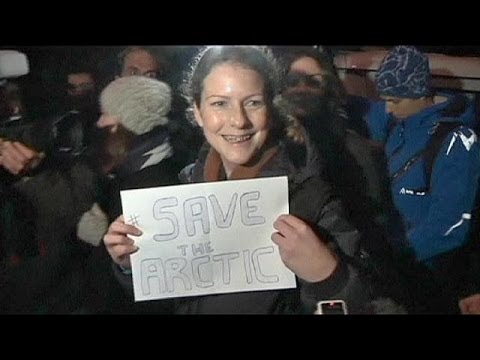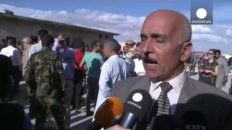The first of the so-called ‘Arctic 30’ Greenpeace activists has walked free on bail.
Brazilian Ana Paula Alminhana Maciel smiled and was silently defiant as she was released.
After a burst of courtroom drama Russian judges have now granted bail to 20 of the 30 environmentalists who were arrested in September as they protested against Arctic drilling. All 20 should be released when their bail money is paid.
While the news was welcomed by Greenpeace, activist and interpreter Tatyana Kriubakhina was more cautious:
“Obviously, they all understand that the bail is not the definitive freedom, there are still limits, but even when they were transferred from Murmansk to St Petersburg, they were happy to see the sun on their walks within the prison… So, just the possibility of getting out of jail, even temporarily, is so cool.”
However some activists are still waiting for the court’s decision and one of them has even had his detention extended by three months; Greenpeace supporters intend to appeal that decision.
“The whole organisation is working on this issue,” said Greenpeace communications coordinator Patric Salize. “Since the bombing of the Rainbow Warrior (in 1985) we haven’t faced any situation like this. It’s a threat not just to our organisation, but to the whole environmental movement.”
Euronews’ reporter in St Petersburg Denis Loctier said:
“The release of the first of the accused activists raises the hopes of their supporters. But the serious charges haven’t been dropped. Until the final verdicts have been delivered, the outcome for the ‘Arctic 30’ remains uncertain.”





